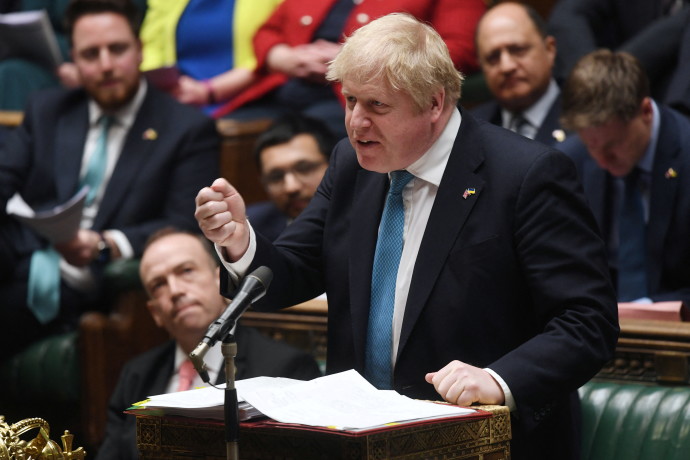British Prime Minister Boris Johnson survived a confidence vote on Monday but a rebellion by 148 of his 359 Conservative Party lawmakers dealt a serious blow to his authority.
A majority of the Conservatives' lawmakers - at least 180 - would have had to vote against Johnson for him to be removed.
The result means Johnson secured the backing of 59% of his lawmakers, lower than the support given to his predecessor Theresa May in a confidence vote she faced in 2018.
Having scored a sweeping election victory in 2019, the prime minister has been under mounting pressure after he and staff held alcohol-fueled parties in his Downing Street office and residence when Britain was under strict COVID-19 lockdowns.
Such is the anger that the party triggered a challenge, forcing an anonymous vote of confidence in a leader who had once seemed unassailable.

The move led to lawmakers from different wings of the party revealing that they had turned against their leader. One former ally accused the prime minister of insulting both the electorate and the party by staying in power.
"You have presided over a culture of casual law-breaking at 10 Downing Street in relation to COVID," Jesse Norman, a former junior minister, said before the vote.
You have presided over a culture of casual law-breaking at 10 Downing Street in relation to COVID
Jesse Norman
Johnson's anti-corruption chief John Penrose also quit.
Conservative concerns
Dozens of Conservative lawmakers have voiced concern that Johnson, 57, could be losing his authority to govern Britain, which is facing the risk of recession, rising fuel and food prices and strike-inflicted travel chaos in the capital London.
But his cabinet of leading ministers rallied around him and highlighted what they said were the successes of the government: a quick rollout of COVID-19 vaccinations and Britain's response to Russia's invasion of Ukraine.
In the hours before the ballot, Johnson told his party's lawmakers he would shore up the economy and return to traditional Conservative policies such as cutting taxes.
